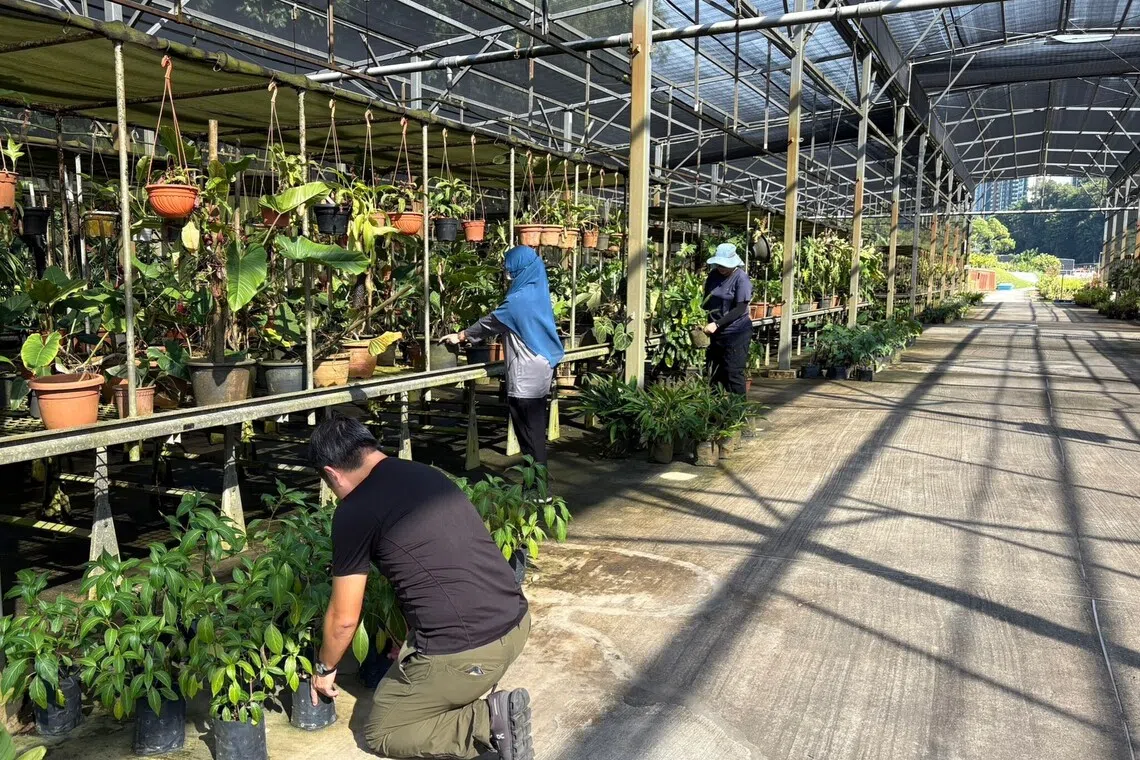Landscape firms, orchid nurseries will have longer first-term land tenure periods from November
Sign up now: Get ST's newsletters delivered to your inbox

NParks will roll out a revised tenancy model for new landscape and orchid nursery land plots.
PHOTO: NATIONAL PARKS BOARD
SINGAPORE – Landscape firms and orchid nurseries applying for land plots from November will get longer first-term land tenures, under a revised tenancy model introduced by the National Parks Board (NParks) on Oct 13.
The current model offers an initial three-year tenure that is renewable for up to two additional three-year terms – a so-called 3+3+3-year model.
But from November, the tranche of tenancy plots of 1ha put up for tender by NParks will be subject to a tenancy model of 6+3 years instead.
The tenancy plots managed by NParks are mostly located in Lim Chu Kang and Sungei Tengah.
With a longer first-term tenure of six years, tenants will apply for renewal only in the seventh year, instead of applying in the fourth year.
Announcing the change at the 10th Regional Arboriculture Seminar at the Devan Nair Institute for Employment and Employability, Mr Alvin Tan, Minister of State for National Development and Trade and Industry, said the revised model will help nursery operators better plan operational enhancements, such as investing in advanced equipment to boost productivity.
The seminar, held on Oct 13 and 14, involves tree-care practitioners and researchers in the region. They will share their insights on the latest developments in arboriculture policies and real-world case studies, among other things.
“We hear that nurseries typically require substantial upfront investment and face development costs, as well as a longer timeline to complete construction works and become fully operational,” Mr Tan said.
The extension will also mean the rental rates remain the same for the first six years, providing nursery operators with greater certainty of operating costs.
For orchid nursery operators, the longer first-term tenure will align better with the cultivation cycle of orchids, as some new orchid varieties take at least three years between hybridisation and commercial production, said Mr Tan.
“This will give more stability for orchid nursery operators to pursue more ambitious orchid-breeding programmes, and develop unique and novel varieties,” he added.
NParks said in a separate statement that it had taken industry feedback into account before announcing the revision.
It added: “The revised tenancy model provides greater business stability, enabling nursery operators to improve business planning and make longer-term investments in technology and equipment. This will ultimately boost productivity for the landscape industry.”
Ms Jacqueline Allan, president of Landscape Industry Association (Singapore), which was consulted on the revised tenancy model, said the time required to develop land may take longer than expected.
This means that businesses may not see their return on investment by the third year.
“When the renewal comes into play (at the fourth year), there may be an incremental cost to the rental rates... they might suddenly decide that they cannot stomach that cost and pull out of it,” she said.
Alongside the revised tenancy model, NParks announced on Oct 13 other initiatives to support businesses in the landscape industry.
These include enhancing its tender briefing process by conducting site visits for prospective bidders at the tendered land plots to help them make more informed decisions.
A specialised training course co-developed by NParks and the Institution of Engineers will be launched later in 2025 to equip industry players with technical and regulatory knowledge for planning and developing nursery or farm operations in Singapore.
During the event, Mr Tan also announced that the first national standard on tree management has been drafted, and will be open for public consultation from Nov 7 to Jan 8, 2026.
The new standard will set out common standards for tree pruning and industry-recognised best practices for tree-care practitioners in Singapore.
“It is also tailored to the unique conditions of urban trees growing in tropical climates such as ours,” said Mr Tan.
NParks said tree pruning is a key component in tree care.
“Poor or inconsistent pruning practices not only affect the general appearance of trees but also weaken them, making them more susceptible to pests, diseases and potential failure,” said NParks.
“Establishing a shared set of guidelines among tree owners and tree-care practitioners is essential to ensuring the long-term health of our urban trees and improving public safety,” the board added.
Ms Allan said that during dry periods, trees naturally shed leaves and branches, and when there is heavy rain, some trees may lose their branches.
Better and species-specific tree management and pruning would help the trees grow in their intended structural form and anchor them better, helping them weather the heavy rain, she added.



